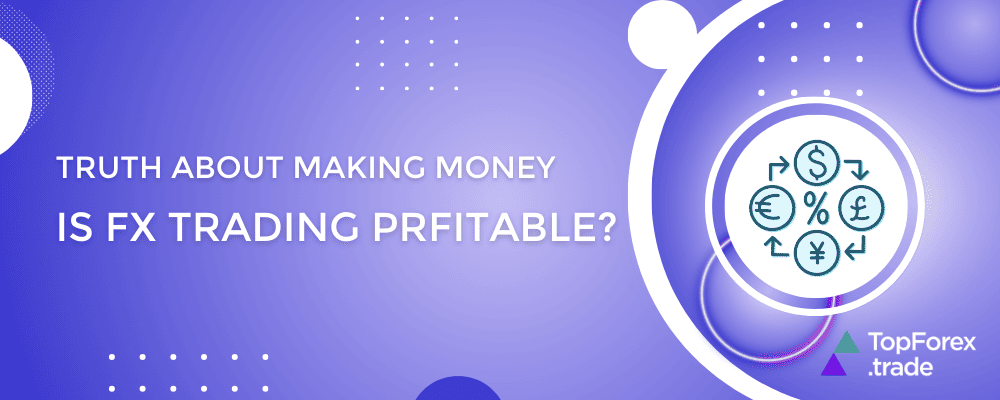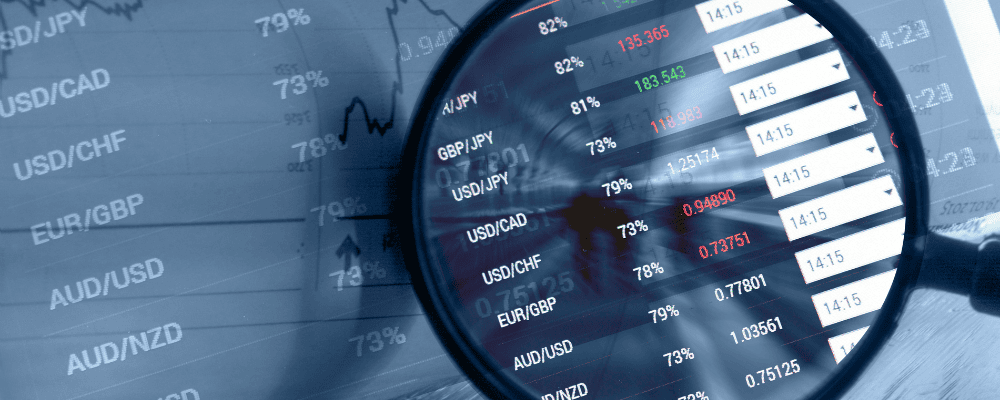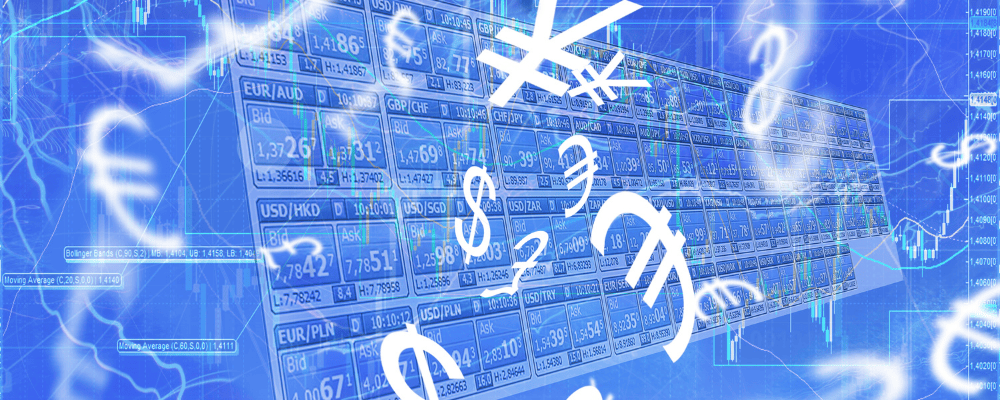Can you make a living from Forex trading? Profitability, risks, and best brokers

Forex trading volume exceeds $7 trillion, making it the largest and most liquid financial market in the world. Many traders are drawn to Forex due to its 24/5 availability, higher leverage opportunities, and the potential for substantial profits.
However, the question remains: Is Forex trading truly profitable, or is it just a high-risk gamble? While some traders achieve consistent success, many others struggle to make sustainable profits.
Forex traders make money by speculating on currency price movements. The key ways to profit include:
- Capital gains: Buying a currency pair at a lower price and selling it at a higher price (going long) or selling high and buying low (going short).
- Leverage: Brokers offer leverage (e.g., 1:30, 1:100), allowing traders to control larger positions with a small deposit, amplifying both potential gains and losses.
- Different trading strategies:
Scalping – Short-term trades that capitalize on small price movements.
Day trading – Buying and selling within the same day to avoid overnight risks.
Swing trading – Holding positions for days or weeks to capture larger price trends.
Position trading – Long-term trading based on fundamental and macroeconomic factors.
Yet, profitability is closely tied to risk management. While some traders generate consistent profits, Forex is a zero-sum game—one trader’s gain is another’s loss. Factors like market volatility, leverage misuse, and emotional decision-making can turn potential profits into significant losses.
Factors that influence trading profitability
Market knowledge and strategy
One of the biggest factors that determine success in trading is knowledge and strategy. The Forex market is complex, influenced by economic events, geopolitical factors, and market sentiment. Traders who take the time to learn Technical and Fundamental analysis can make more informed decisions.
- Technical analysis – Studying price charts, trends, and indicators (e.g., moving averages, RSI, MACD) to predict price movements.
- Fundamental analysis – Evaluating economic data, interest rates, and global events that impact currency values.
- A well-defined trading plan – Successful traders develop and stick to a plan that includes entry and exit rules, risk management strategies, and profit targets.
Without a solid strategy, traders often make impulsive decisions that lead to losses.
Risk management
Profitable Forex trading isn’t just about making winning trades—it’s about minimizing losses. Risk management is crucial in maintaining long-term profitability. Key risk management tools include:
- Stop-loss orders: Automatically closes a trade at a predetermined price to prevent excessive losses.
- Risk-reward ratios: Ensuring that potential profits outweigh potential losses (e.g., risking $100 to make $300, a 1:3 ratio).
- Position sizing: Adjusting trade sizes based on account size and risk tolerance to prevent overexposure.
Even professional traders experience losing trades, but proper risk management prevents a few bad trades from wiping out an account.
Leverage and margin
Leverage allows traders to control large positions with a small amount of capital, increasing profit potential. However, it also magnifies losses.
Example: With 1:100 leverage, a trader can control a $10,000 position with just $100. If the trade moves in their favor, profits are amplified. But if the trade moves against them, losses can be severe.
If losses exceed the available margin, brokers may automatically close positions, leading to forced losses.
Can you make a living from Forex trading?

Many aspiring traders dream of making a full-time income from Forex trading. While some achieve this, the reality is that only a small percentage of traders reach consistent profitability. Here are some of the reasons why:
Realistic expectations: professional traders vs. retail traders
Forex trading is often marketed as a way to achieve financial freedom, but the truth is that professional traders and retail traders operate under very different conditions.
Professional traders work for hedge funds, banks, or proprietary trading firms with access to better resources, lower trading costs, and advanced algorithms. They follow strict risk management strategies and focus on long-term performance.
Retail traders trade with personal funds, often using high leverage and dealing with emotional decision-making. Many lack formal training and a structured trading plan, making profitability more difficult.
Retail traders do achieve success, but it typically requires years of learning, disciplined strategy execution, and a strong risk management approach.
Success rates and profitability statistics in Forex trading
Various studies indicate that a majority of retail forex traders lose money over time. Estimates suggest that 70-90% of traders fail within the first year. However, those who persist, refine their strategies, and develop disciplined habits can improve their odds.
— Why do most traders lose money?
- Lack of risk management (over-leveraging, poor stop-loss placement).
- Trading based on emotions rather than analysis.
- Unrealistic profit expectations and impatience.
— What makes traders profitable?
- Consistent application of a proven strategy.
- Strong risk-reward ratios (e.g., risking 1% to make 3%).
- A long-term approach with controlled emotions and discipline.
Making a living from forex trading isn’t about hitting a few lucky trades—it’s about consistent, sustainable profitability over time.
- Consistency – Small, steady gains over months and years are better than short-term wins followed by big losses.
- Patience – Many traders give up too soon. It takes time to develop skills, test strategies, and build confidence.
- Long-term planning – Even successful traders go through losing streaks. Having a financial cushion, diversifying income sources, and reinvesting profits wisely are essential for long-term sustainability.
Forex trading can be profitable, but it requires realistic expectations, a well-structured approach, and the discipline to stick to a strategy. While some traders make a living from forex, the road to success is challenging, and only those who commit to learning and risk management can achieve long-term profitability.
The best brokers for Forex trading in 2025

Even with a solid strategy, a trader’s success heavily depends on their choice of broker. A reliable forex broker provides tight spreads, fast execution, advanced trading tools, and a secure trading environment. To create this list, the TopForex.trade team explored key features and benefits that traders should look for when selecting a broker for forex and CFD trading, including competitive spreads, strong regulation, and advanced risk management tools.
XM: a versatile broker for all types of traders
XM is a globally recognized broker known for its tight spreads, fast execution, and diverse account types. Regulated by multiple financial authorities, XM offers a secure and transparent trading environment. With leverage up to 1:1000, over 1,000 trading instruments, and support for MetaTrader 4 and 5, XM caters to both beginners and experienced traders.
— Why Trade Forex with XM?
- Ultra-low spreads: XM provides some of the tightest spreads in the industry, starting from 0.0 pips.
- High-speed execution: 99.35% of orders are executed in less than a second, minimizing slippage.
- Flexible leverage: Choose leverage from 1:1 to 1:1000, allowing better risk management.
- No hidden fees: Transparent pricing with no commissions on standard accounts.
- Diverse trading options: Trade forex, commodities, indices, stocks, and cryptocurrencies.
HF Markets: security and risk protection for traders
HF Markets, formerly HotForex, is a multi-regulated broker that offers a strong focus on risk management and trader security. It provides negative balance protection, meaning traders can’t lose more than their deposit. With various account types, competitive spreads, and advanced trading tools, HF Markets is an excellent choice for both beginners and professional traders.
— Why Trade Forex with HF Markets?
- Negative balance protection: Ensures traders do not fall into debt due to high volatility.
- Tight spreads and low trading costs: Spreads start from 0.1 pips, reducing trading expenses.
- Diverse trading instruments: Over 1,200 markets, including forex, metals, energies, and stocks.
- Multiple trading platforms: Supports MT4, MT5, and WebTrader, along with a proprietary app.
- Advanced risk management tools: Stop-loss and take-profit features help secure profits and limit losses.
eToro: the leader in Social trading
eToro is widely known for pioneering Social trading, allowing traders to copy the trades of successful investors with its CopyTrader feature. This makes it ideal for beginners or those who want to learn from experienced traders. With commission-free trading, eToro offers a user-friendly and innovative approach to the market.
— Why Trade Forex with eToro?
- Copy trading feature: Automatically copy top-performing traders and benefit from their expertise.
- Zero commission on Forex: Trade without hidden fees or additional charges.
- Fractional trading: Start with small amounts, making it accessible for all traders.
- Multi-asset platform: Trade currencies, stocks, crypto, ETFs, and commodities from a single account.
- Advanced risk management: Adjustable leverage and stop-loss features help traders control risk.
AvaTrade: advanced technology for smarter trading
AvaTrade is a globally regulated forex broker offering multiple trading platforms, including MetaTrader 4 & 5, WebTrader, AvaOptions, and AvaTradeGO. With a strong focus on algorithmic trading and risk management, AvaTrade provides a feature-rich trading experience.
— Why trade CFDs with AvaTrade?
- Multiple trading platforms: Supports MT4, MT5, and its proprietary AvaTradeGO app.
- Fixed & floating spreads: Choose between stable pricing or low variable spreads.
- Automated trading support: Compatible with EAs (Expert Advisors) and algorithmic strategies.
- Wide asset selection: Trade currencies, stocks, commodities, indices, and cryptocurrencies.
- Regulated & secure: Licensed in multiple jurisdictions, ensuring trader safety.
Is Forex trading really profitable? - FAQ
